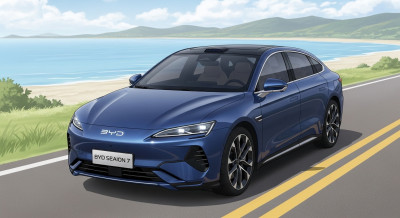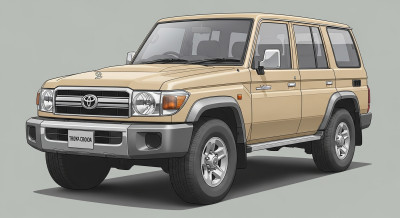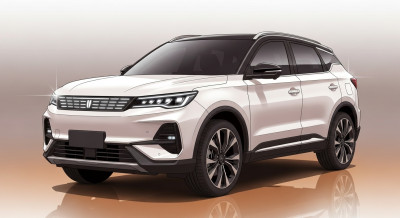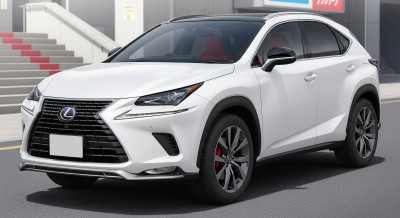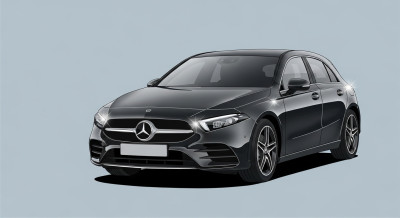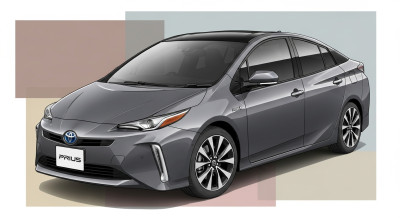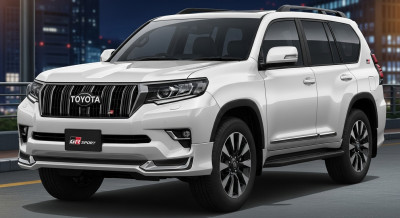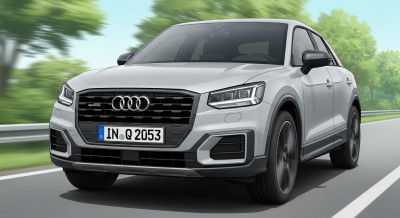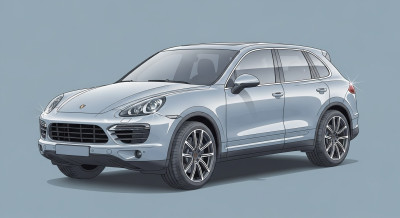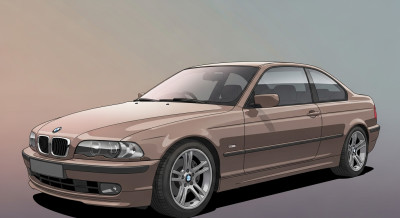Opel Astra 1991 - 1999 Video Tributo
Video Preparado por AA Car Videos Chile, sobre el modelo de la casa Germana, el Opel Astra F.
La primera generación del Astra (conocida como Astra F, esta denominación viene de que su predecesor es el Kadett E) apareció en Septiembre de 1991 como sustituto del Kadett. El cambio de nombre se debió a la estrategia comercial de General Motors de homogeneizar las gamas de sus filiales europeas Opel y Vauxhall.
Se fabricó con carrocerías hatchback, familiar (Caravan) la que finalmente puso fin a la serie de familiares de tres puertas de Opel., sedán y descapotable, esta última diseñada por Bertone.
El Opel Astra también estuvo disponible en Australia con el distintivo de Holden , primero en Nueva Zelanda en 1995 y luego en Australia en 1996. Opel Astra se exportó a Brasil desde diciembre de 1994 como Chevrolet Astra, hasta 1996. A partir de marzo de 1995, el sedán Astra se ensambló en Indonesia, donde se comercializó como el "Opel Optima".
Se vendió con las siguientes motorizaciones: 1.7D 57 cv, 60cv al cual se le incorporó un turbo de bajo soplado GARRETT llegando a 68cv, 1.7TD 82 cv; 1.4 75cv, 1.4i en 60 y 82 cv; 1.4i 16V 90 cv , 1.6i 71 cv y 75 cv; 1.6si 98cv ; 1.6i 16v 100 cv; 1.8i 90 cv; 1.8i 16V 113 cv; 1.8 i 16V 115 cv, 1.8i 16V 125 cv; 2.0i 115 cv; 2.0i 16V 136 cv. Los diésel son de procedencia ISUZU MENOS los motores con código 17D, 17DR y X17DTL (que en realidad tienen el mismo bloque) que son de origen GM/Opel. Con transmision Manual o Automatica.
En el tercer trimestre de 1994, Opel presentó para la línea 1995 una pequeña reestilización, cambiándole el color de las luces intermitentes de naranja a transparente (blanco), cosa que ya tenían los GSi, un cambio de espejos laterales, oscurecimiento de luces traseras, cambio del logo de Opel trasero y rediseño de la tipografía de los nombres "Opel" y "Astra" a una cromada y más estilizada. El exterior cambió radicalmente a peor, los parachoques ya no eran tan deportivos y las letras "GSi" ubicadas anteriormente en el parachoques delantero y en el portón trasero desaparecieron. El interior cambió con nuevos tapizados y equipos de sonido. También se cambió la gama de motores para adaptarse a las nuevas normas de contaminación y se le incorporó de doble airbag en opción, siendo de serie para el conductor.
Mientras que el Astra F terminó la producción en Alemania en 1998, los Astra construidos en Polonia permanecieron en oferta en Europa Central y Oriental, así como en Turquía, con el nombre de Astra Classic de 1998 a 2002.
Video Prepared by AA Car Videos Chile, on the model of the German house, the Opel Astra F.
The first generation of Astra (known as Astra F, this denomination comes from the fact that its predecessor is Kadett E) appeared in September 1991 as a substitute for Kadett. The name change was due to General Motors' commercial strategy of homogenizing the ranges of its European subsidiaries Opel and Vauxhall.
It was made with hatchback bodies, familiar (Caravan) which finally ended the series of three-door family of Opel., Sedan and convertible, the latter designed by Bertone.
The Opel Astra was also available in Australia with the Holden badge, first in New Zealand in 1995 and then in Australia in 1996. Opel Astra was exported to Brazil from December 1994 as Chevrolet Astra, until 1996. As of March 1995 , the Astra sedan was assembled in Indonesia, where it was marketed as the "Opel Optima".
It was sold with the following engines: 1.7D 57 hp, 60hp to which a GARRETT low blow turbo was incorporated reaching 68cv, 1.7TD 82 hp; 1.4 75cv, 1.4i in 60 and 82 hp; 1.4i 16V 90 hp, 1.6i 71 hp and 75 hp; 1.6si 98cv; 1.6i 16v 100 hp; 1.8i 90 hp; 1.8i 16V 113 hp; 1.8 i 16V 115 hp, 1.8i 16V 125 hp; 2.0i 115 hp; 2.0i 16V 136 hp. The diesels are from ISUZU LESS the engines with code 17D, 17DR and X17DTL (which actually have the same block) that are of GM / Opel origin. With Manual or Automatic transmission.
In the third quarter of 1994, Opel presented a small restyling for the 1995 line, changing the color of the flashing lights from orange to transparent (white), which the GSi already had, a change of side mirrors, dimming of taillights, change of the logo of Opel back and redesign of the typography of the names "Opel" and "Astra" to a chrome and more stylized. The exterior changed radically for the worse, the bumpers were no longer as sporty and the letters "GSi" previously located on the front bumper and on the tailgate disappeared. The interior changed with new upholstery and sound equipment. The engine range was also changed to adapt to the new pollution standards and it was incorporated with a double airbag option, being standard for the driver.
While the Astra F finished production in Germany in 1998, the Astra built in Poland remained on offer in Central and Eastern Europe, as well as in Turkey, under the name of Astra Classic from 1998 to 2002.
#opel #opelastra #astra #opelgermany #opelchil
Video Preparado por AA Car Videos Chile, sobre el modelo de la casa Germana, el Opel Astra F.
La primera generación del Astra (conocida como Astra F, esta denominación viene de que su predecesor es el Kadett E) apareció en Septiembre de 1991 como sustituto del Kadett. El cambio de nombre se debió a la estrategia comercial de General Motors de homogeneizar las gamas de sus filiales europeas Opel y Vauxhall.
Se fabricó con carrocerías hatchback, familiar (Caravan) la que finalmente puso fin a la serie de familiares de tres puertas de Opel., sedán y descapotable, esta última diseñada por Bertone.
El Opel Astra también estuvo disponible en Australia con el distintivo de Holden , primero en Nueva Zelanda en 1995 y luego en Australia en 1996. Opel Astra se exportó a Brasil desde diciembre de 1994 como Chevrolet Astra, hasta 1996. A partir de marzo de 1995, el sedán Astra se ensambló en Indonesia, donde se comercializó como el "Opel Optima".
Se vendió con las siguientes motorizaciones: 1.7D 57 cv, 60cv al cual se le incorporó un turbo de bajo soplado GARRETT llegando a 68cv, 1.7TD 82 cv; 1.4 75cv, 1.4i en 60 y 82 cv; 1.4i 16V 90 cv , 1.6i 71 cv y 75 cv; 1.6si 98cv ; 1.6i 16v 100 cv; 1.8i 90 cv; 1.8i 16V 113 cv; 1.8 i 16V 115 cv, 1.8i 16V 125 cv; 2.0i 115 cv; 2.0i 16V 136 cv. Los diésel son de procedencia ISUZU MENOS los motores con código 17D, 17DR y X17DTL (que en realidad tienen el mismo bloque) que son de origen GM/Opel. Con transmision Manual o Automatica.
En el tercer trimestre de 1994, Opel presentó para la línea 1995 una pequeña reestilización, cambiándole el color de las luces intermitentes de naranja a transparente (blanco), cosa que ya tenían los GSi, un cambio de espejos laterales, oscurecimiento de luces traseras, cambio del logo de Opel trasero y rediseño de la tipografía de los nombres "Opel" y "Astra" a una cromada y más estilizada. El exterior cambió radicalmente a peor, los parachoques ya no eran tan deportivos y las letras "GSi" ubicadas anteriormente en el parachoques delantero y en el portón trasero desaparecieron. El interior cambió con nuevos tapizados y equipos de sonido. También se cambió la gama de motores para adaptarse a las nuevas normas de contaminación y se le incorporó de doble airbag en opción, siendo de serie para el conductor.
Mientras que el Astra F terminó la producción en Alemania en 1998, los Astra construidos en Polonia permanecieron en oferta en Europa Central y Oriental, así como en Turquía, con el nombre de Astra Classic de 1998 a 2002.
Video Prepared by AA Car Videos Chile, on the model of the German house, the Opel Astra F.
The first generation of Astra (known as Astra F, this denomination comes from the fact that its predecessor is Kadett E) appeared in September 1991 as a substitute for Kadett. The name change was due to General Motors' commercial strategy of homogenizing the ranges of its European subsidiaries Opel and Vauxhall.
It was made with hatchback bodies, familiar (Caravan) which finally ended the series of three-door family of Opel., Sedan and convertible, the latter designed by Bertone.
The Opel Astra was also available in Australia with the Holden badge, first in New Zealand in 1995 and then in Australia in 1996. Opel Astra was exported to Brazil from December 1994 as Chevrolet Astra, until 1996. As of March 1995 , the Astra sedan was assembled in Indonesia, where it was marketed as the "Opel Optima".
It was sold with the following engines: 1.7D 57 hp, 60hp to which a GARRETT low blow turbo was incorporated reaching 68cv, 1.7TD 82 hp; 1.4 75cv, 1.4i in 60 and 82 hp; 1.4i 16V 90 hp, 1.6i 71 hp and 75 hp; 1.6si 98cv; 1.6i 16v 100 hp; 1.8i 90 hp; 1.8i 16V 113 hp; 1.8 i 16V 115 hp, 1.8i 16V 125 hp; 2.0i 115 hp; 2.0i 16V 136 hp. The diesels are from ISUZU LESS the engines with code 17D, 17DR and X17DTL (which actually have the same block) that are of GM / Opel origin. With Manual or Automatic transmission.
In the third quarter of 1994, Opel presented a small restyling for the 1995 line, changing the color of the flashing lights from orange to transparent (white), which the GSi already had, a change of side mirrors, dimming of taillights, change of the logo of Opel back and redesign of the typography of the names "Opel" and "Astra" to a chrome and more stylized. The exterior changed radically for the worse, the bumpers were no longer as sporty and the letters "GSi" previously located on the front bumper and on the tailgate disappeared. The interior changed with new upholstery and sound equipment. The engine range was also changed to adapt to the new pollution standards and it was incorporated with a double airbag option, being standard for the driver.
While the Astra F finished production in Germany in 1998, the Astra built in Poland remained on offer in Central and Eastern Europe, as well as in Turkey, under the name of Astra Classic from 1998 to 2002.
#opel #opelastra #astra #opelgermany #opelchile
 LEXUS
LEXUS  AUDI
AUDI  PORSCHE
PORSCHE  ROLLS-ROYCE
ROLLS-ROYCE  LAND ROVER
LAND ROVER  FERRARI
FERRARI  MASERATI
MASERATI  CADILLAC
CADILLAC  CHRYSLER JEEP
CHRYSLER JEEP 















